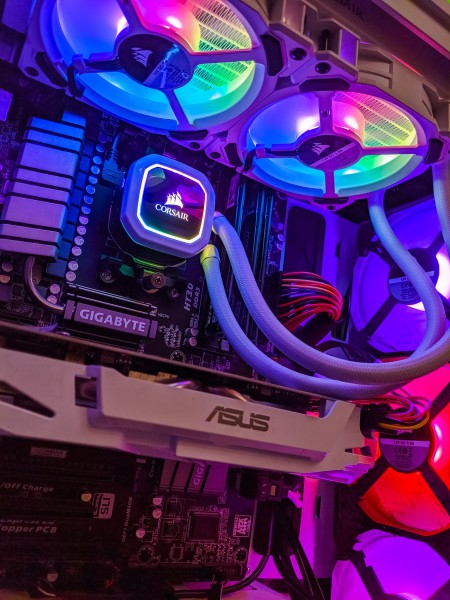101 on Computer Cooling...

The temperature of your system is very important to its maintenance. If temperatures are not controlled, your device's parts are at risk of overheating. Although it might not seem like a big deal, it could cause damage in the long term. When the CPU temperature rises too high, a function kicks that then decreases efficiency to protect the processor. The temperature will easily increase if any of the components are dispersing heat into a specific region, such as the interior of a PC case. If the case is not adequately ventilated, the hot air will cause the device to overheat, resulting in decreased efficiency. A safer solution is to keep the CPU cold enough so that the mechanism does not activate in the first place. If you are wondering how to keep your pc safe, here are the 101 basics to keeping your system in check to preserve longevity and quality ensure that your system runs effectivity,
• Allow two to three inches of space on all sides of your computer for optimal performance.
• Allow two to three inches of space on all sides of your computer for optimal performance.
• A sealed case keeps your system cool by reducing the amount of dust and dirt that gets into the cooling systems. If your fans are exposed to too much grime, they may slow down or stop working altogether.
• Turn your machine off and dust each fan with a compressed air duster. This is safer than using a vacuum because the static it emits can cause harm to the hardware.
• The computer's CPU is arguably one of the most sensitive expensive parts. You do not want this part to be damaged. Most CPUs come with a smaller fan pre-installed when purchased. These fans run the bare minimum and are just enough to keep your system from working. Because of this, a higher quality fan should be installed for the longevity of the hardware.
• If you work with high-end programs that use graphic cards, it would be helpful to install a case fan as it increases the inflow and reduces the heat that the graphic and memory card emits.
• Check the fan on your system's power supply. The only thing moving excess heat out of your device is the power supply fan. If it's not functioning correctly, your device will rapidly overheat.
• Organize your cables well to avoid unwanted blockages which will not only improve the aesthetics of your design but will also help with the airflow.
• Stop overclocking your computer; use it as it was designed to use.
• Modify the fan's rotations per minute (RPM) by using a system like Speed Fan.
• Replace the power supply when needed
.• Install a water-cooling kit.
• Install a phase-changing kit.
